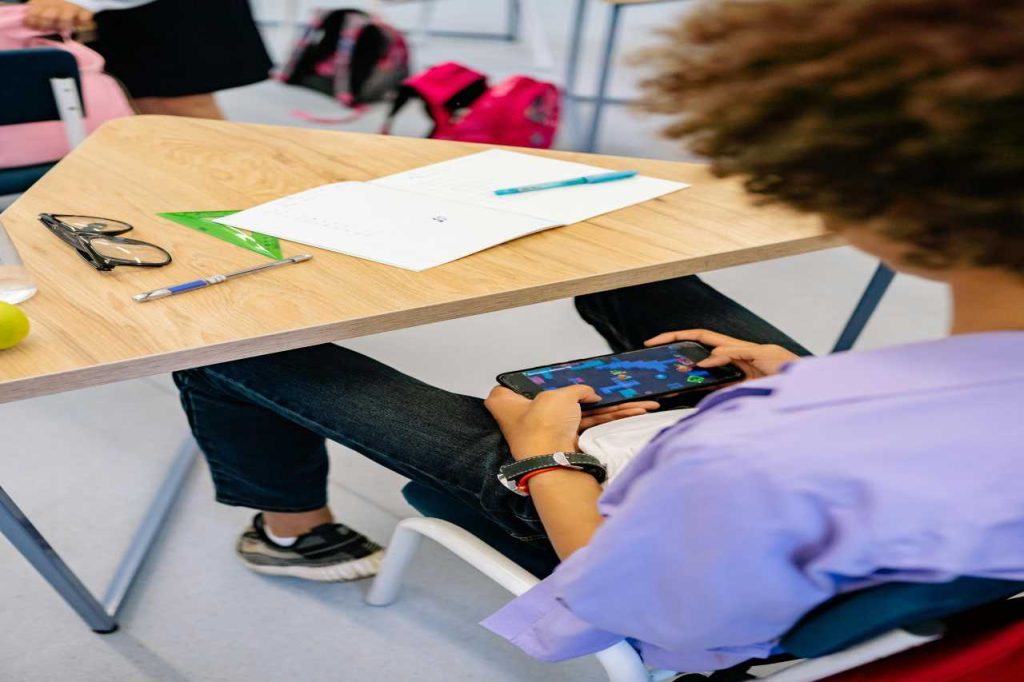In our fast-paced, technology-driven world, distractions are everywhere. From constant notifications on our phones to the never-ending stream of information online, it’s becoming increasingly challenging to maintain focus and productivity. Distractions can hinder our ability to work efficiently, achieve our goals, and even affect our mental well-being.
In this blog, we’ll explore nine effective strategies to help you free yourself from distractions and reclaim your focus, enabling you to work more efficiently and live more mindfully.

1. Identify Your Distractions
The first step in freeing yourself from distractions is to identify what they are. Take a moment to reflect on the common distractions that pull you away from your tasks. This could include:
- Digital distractions: Social media, emails, and notifications.
- Environmental distractions: Noisy surroundings, clutter, or interruptions from others.
- Internal distractions: Stress, daydreaming, or fatigue.
Once you have a clear understanding of your distractions, you can develop a plan to minimize their impact.
2. Create a Dedicated Workspace
Your environment plays a significant role in your ability to focus. Setting up a dedicated workspace can help signal to your brain that it’s time to work. Here are some tips for creating an effective workspace:
- Choose a quiet location: Find a spot that’s free from distractions and noise.
- Declutter your space: Keep only the items that are necessary for your work to reduce visual distractions.
- Personalize your workspace: Add elements that inspire you, like plants, artwork, or motivational quotes.
Having a designated workspace can improve your focus and productivity by providing a consistent environment that fosters concentration.
3. Set Clear Goals and Priorities
Distractions often arise when we lack direction or clarity about our tasks. To combat this, set clear goals and prioritize your tasks. Here’s how to do it effectively:
- Use SMART goals: Ensure your goals are Specific, Measurable, Achievable, Relevant, and Time-bound.
- Break tasks into smaller steps: This makes them more manageable and less overwhelming.
- Create a daily to-do list: List your priorities for the day to keep you on track and focused.
By having a clear plan, you can minimize distractions and stay committed to your objectives.
4. Limit Digital Distractions

Digital devices can be significant sources of distraction. To enhance your focus, consider implementing the following strategies:
- Turn off notifications: Silence alerts from social media, email, and apps during work hours.
- Set specific times for checking emails: Allocate designated times to respond to emails and messages instead of constantly checking them.
- Use website blockers: Consider using apps or browser extensions that block distracting websites during work sessions.
By managing your digital environment, you can reduce the temptation to veer off-task.
5. Practice Mindfulness and Meditation
Mindfulness and meditation can help train your brain to stay focused and present. By incorporating these practices into your routine, you can improve your concentration and resilience against distractions. Here’s how to get started:
- Set aside time for daily meditation: Even just a few minutes can help clear your mind and enhance your focus.
- Practice mindfulness throughout the day: Take moments to pause, breathe, and ground yourself in the present.
- Use guided meditation apps: Consider using apps like Headspace or Calm to support your mindfulness journey.
Cultivating mindfulness will help you manage distractions and stay centered in your work.
6. Establish a Routine
Routines create structure and predictability, which can help you stay focused and productive. Establishing a daily routine can enhance your ability to concentrate and reduce distractions. Here are some tips for creating an effective routine:
- Set a consistent start time: Begin your workday at the same time each day to establish a rhythm.
- Include breaks: Schedule short breaks to recharge and clear your mind, which can help prevent burnout and maintain focus.
- End with reflection: Take a few moments at the end of each day to reflect on your accomplishments and set intentions for the next day.
A well-structured routine can help you manage your time effectively and stay focused on your tasks.
7. Practice the Pomodoro Technique
The Pomodoro Technique is a time management method that encourages focused work in short bursts followed by breaks. Here’s how to implement it:
- Choose a task to work on.
- Set a timer for 25 minutes and focus solely on that task.
- Take a 5-minute break once the timer goes off.
- Repeat the process for four cycles, then take a longer break (15-30 minutes).
This technique not only helps maintain focus but also prevents burnout by allowing you to recharge regularly.
8. Limit Multitasking

Multitasking may seem like a productive way to handle multiple tasks, but it often leads to decreased focus and efficiency. To improve your concentration, try to:
- Focus on one task at a time: Dedicate your attention to completing one task before moving on to the next.
- Batch similar tasks: Group similar tasks together to streamline your workflow and minimize context-switching.
- Set boundaries for multitasking: If you must juggle multiple tasks, designate specific times for each one.
By limiting multitasking, you can enhance your focus and overall productivity.
9. Seek Support and Accountability
Sometimes, distractions can stem from external pressures or a lack of motivation. Seeking support and accountability from others can help you stay focused and committed to your goals. Here are some ways to do this:
- Share your goals with a friend or colleague: Having someone to share your progress with can boost your motivation and keep you accountable.
- Join a study or work group: Collaborating with others can provide structure and encouragement to stay focused.
- Consider professional coaching: A coach can help you set goals, overcome obstacles, and develop strategies for staying focused.
Engaging with others can provide the support and motivation needed to minimize distractions.
Conclusion
Distractions are an inevitable part of modern life, but they don’t have to derail your focus and productivity. By implementing these nine strategies, you can free yourself from the distractions that steal your attention and reclaim your ability to concentrate on what truly matters.
Remember that improving your focus is a gradual process, and it’s essential to be patient with yourself as you develop new habits. With time and practice, you can cultivate an environment that fosters concentration and allows you to achieve your goals with clarity and purpose.

